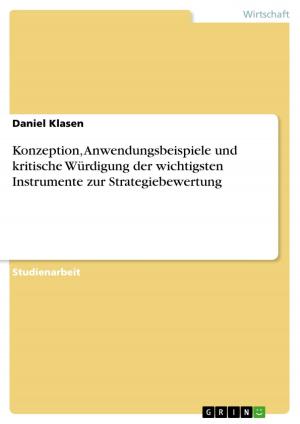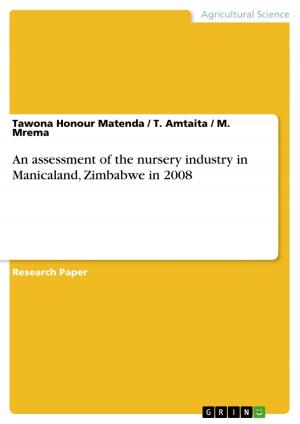The Effect of Information on Supply Chain Management
Business & Finance, Management & Leadership, Production & Operations Management| Author: | Annegret Bätz | ISBN: | 9783668007611 |
| Publisher: | GRIN Verlag | Publication: | June 30, 2015 |
| Imprint: | GRIN Verlag | Language: | English |
| Author: | Annegret Bätz |
| ISBN: | 9783668007611 |
| Publisher: | GRIN Verlag |
| Publication: | June 30, 2015 |
| Imprint: | GRIN Verlag |
| Language: | English |
Bachelor Thesis from the year 2014 in the subject Business economics - Supply, Production, Logistics, grade: 1,0, Cologne University of Applied Sciences, course: Supply Chain Management, language: English, abstract: Everyday thousands of containers are shipped worldwide in order to fulfil customer orders in time. Nowadays focusing only on domestic markets is no longer an option for achieving long-term business success as global competition forces companies to recognise the need for superior design, planning, operation, and coordination of their supply chain activities. These are strongly supported by the rapid progress of information technologies. This thesis aims at establishing the importance of information and its effects on supply chain management, thereby pointing out key aspects that technology plays in managing information. It is structured in the following way: The first chapter defines the relevant terminologies helpful in understanding the overall topic. The second chapter moves on to describe in greater detail the effective management of information flows and their relevance for the three supply chain macro processes. Before proceeding to examine information technologies; chapter 3 deals with the collaborative planning, forecasting, and replenishment approach in order to outline a framework for information exchange along the supply chain. In chapter 4 it is then necessary to discuss the impact of information technologies on facilitating the management of supply chain activities and processes. The fifth chapter follows from the previous one by establishing how technology facilitates the physical movement and storage of inventory in warehousing by addressing the most used supply chain software: warehouse management systems. The final chapter summarises the main results of this thesis.
Bachelor Thesis from the year 2014 in the subject Business economics - Supply, Production, Logistics, grade: 1,0, Cologne University of Applied Sciences, course: Supply Chain Management, language: English, abstract: Everyday thousands of containers are shipped worldwide in order to fulfil customer orders in time. Nowadays focusing only on domestic markets is no longer an option for achieving long-term business success as global competition forces companies to recognise the need for superior design, planning, operation, and coordination of their supply chain activities. These are strongly supported by the rapid progress of information technologies. This thesis aims at establishing the importance of information and its effects on supply chain management, thereby pointing out key aspects that technology plays in managing information. It is structured in the following way: The first chapter defines the relevant terminologies helpful in understanding the overall topic. The second chapter moves on to describe in greater detail the effective management of information flows and their relevance for the three supply chain macro processes. Before proceeding to examine information technologies; chapter 3 deals with the collaborative planning, forecasting, and replenishment approach in order to outline a framework for information exchange along the supply chain. In chapter 4 it is then necessary to discuss the impact of information technologies on facilitating the management of supply chain activities and processes. The fifth chapter follows from the previous one by establishing how technology facilitates the physical movement and storage of inventory in warehousing by addressing the most used supply chain software: warehouse management systems. The final chapter summarises the main results of this thesis.















